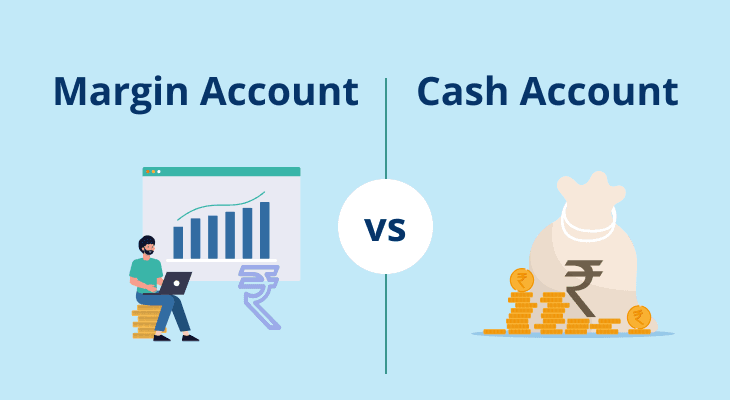
Pros and Cons of Opening Multiple Demat Accounts
The number of demat accounts in India rose to 10.4 crore in October 2022 from 7.4 crore in October 2021, a 41 per cent growth. In today's world, where we have multiple social media and bank accounts, a question that can arise is, can one open multiple demat accounts? Along with this question, many other questions rise into our minds, such as "Is it legal to hold more than one demat account?", "What are the pros and cons of holding more than one demat account?"
The answer to these questions is yes, you can open multiple demat accounts if you already have one. It is not illegal, but there are a few things to keep in mind before you do.
Understanding Legality of Multiple Demat Accounts
The best part is that having more than one Demat account is totally legal in India. Just like opening multiple bank accounts, you can have multiple demat accounts for various purposes. However, you need to maintain all your accounts and transactions in order to be organised and compliant with the law.
You are good to go as long as you make your investments transparent and follow SEBI (Securities and Exchange Board of India) guidelines! However, there are certain important things that must be considered before rushing into opening and operating more than one Demat account. Let’s just put them down.
Things to keep in mind before opening multiple demat accounts
Nowadays, opening a demat account has become as simple as opening a savings bank account. But you need to consider the following.
You can open only one demat account with each broker, and you need to approach a second broker if you wish to open another demat account.
Multiple demat accounts can be beneficial for traders who want to segregate their investments and be more organised. They can use one demat account for trading and another one only for investing.
Demat accounts you hold attract annual maintenance charges or AMC, which range from ₹500 to ₹1,000 per year.
At present, there are two depositories in India, the National Securities Depository Ltd (NSDL) and Central Depository Services Ltd (CDSL). Your securities are held with NSDL or CDSL. Thus, even if you buy your shares via brokers, they have no control over your holdings in the demat account, which makes your securities safe.
Read Also: Can I Have Multiple Demat Accounts in India?
Read Also: How to Open a Joint Demat Account?
Pros of multiple demat accounts
Organised Portfolio
Multiple demat accounts allow you to manage your investments with different brokers. For example, long-term investments can be made via one demat account, while intraday and F&O trades can be made through a second demat account.
Access To Market Insights
With multiple demat accounts, you can easily access research and insights from different brokers. You can use these insights to boost your investments and enhance your current trading/investment strategy.
Diversification Of Portfolio
You can diversify your portfolio with multiple demat accounts. You can segregate your securities into different demat accounts as per your investment strategies to reduce your risks and losses.
Cons of multiple demat accounts
Higher Costs
Having more demat accounts means more account maintenance and transaction fees, resulting in higher overall costs.
Requires More Time And Effort
Managing multiple demat accounts is not an easy task. You will have to spend more time and effort monitoring each account and its operations, which may not be possible for all investors.
Cost Of Inactivity
With multiple accounts, you need to monitor the activity on the accounts and ensure that the accounts have routine transactions so that the broker does not freeze your account after a long period of inactivity.
Tips to Manage Multiple Demat Accounts
It might look like juggling but managing more than one demat account has its own advantages especially if it is well-planned. Herein are some of the useful tips for management of several demat accounts:
Firstly, safely keep all login details for every account and related documents.
Conduct regular checks across your holdings in all the accounts to ensure they meet risk preferences or set objectives.
Where applicable, consider merging accounts so as to streamline administration thereby reducing paperwork.
Be well versed in market regulations besides any changes in brokerage policies that can impact your accounts.
Keep updating your contact details with every broker so that communication is easy.
Just a tad bit of attention to detail makes opening and managing multiple Demat accounts super easy.
Bottom line
Having multiple demat accounts can prove to be beneficial, though there are additional costs that you have to bear. Take advantage of your demat accounts to the fullest extent possible by considering the pros and cons above. If you are considering opening a new online demat account in minutes, you should visit the m.Stock website for a quick and easy onboarding process, along with quick KYC verification to get you started immediately.
FAQ
Can we have two demat accounts in India?
Yes, we can have multiple demat accounts in India. However, do remember per user can open only one demat account with each broker or depository participant.
How to open a demat account?
You can open a free demat account with m.Stock in a few minutes, with zero brokerage charges.
What is the charge of multiple Demat accounts?
Demat Accounts are usually charged with Annual Maintenance Charge (AMC) which ranges between ₹500 to ₹1,000 per year per account. For each account you own and maintain, you have to pay the AMC and other transaction costs based on your use.
Is it legal to have two demat accounts?
Yes, in India, a single person can possess two or more Demat accounts provided each one is associated with the same Permanent Account Number (PAN). However, you cannot have two demat accounts with one broker.
Can you delete one of your Demat accounts?
Yes, you can delete one of your multiple demat accounts. In order to close a demat account, fill out an account closure form, attach necessary documents and submit to the broker. Closing a demat account doesn’t require any charges. However, ensure there are no outstanding dues on the account before closing.


